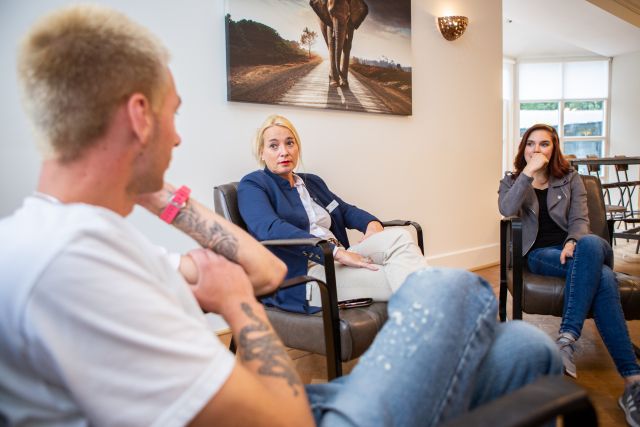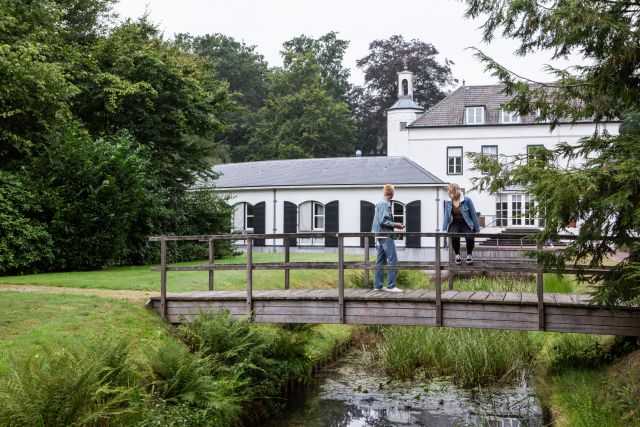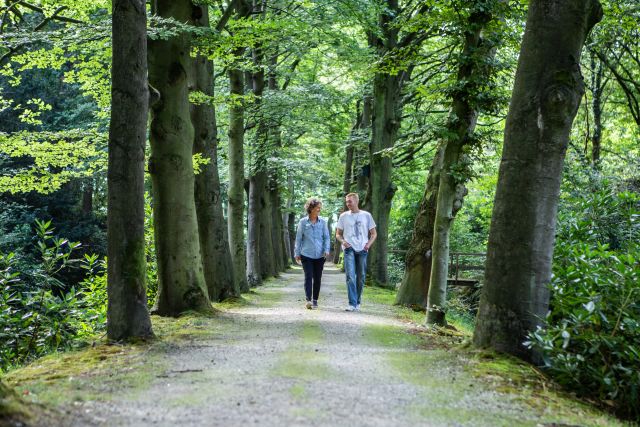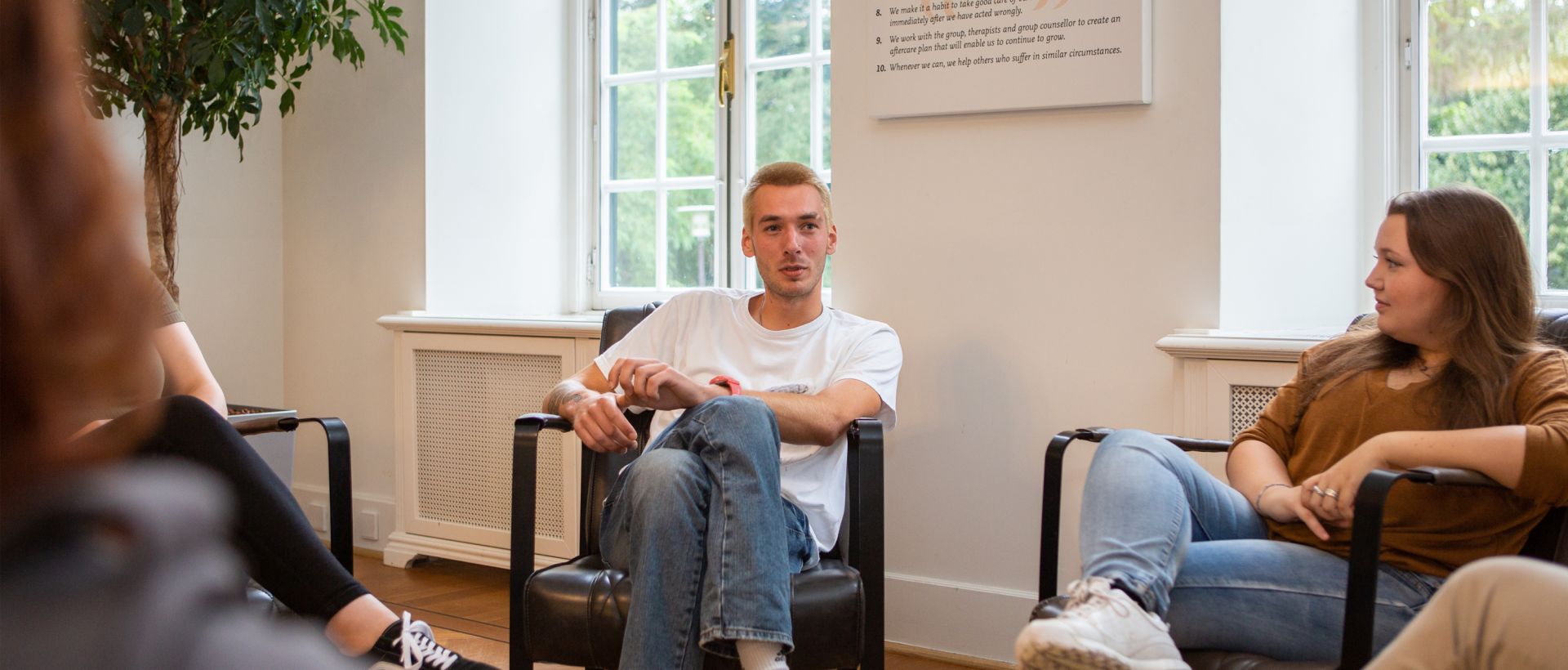What is ASD?
Autism Spectrum Disorder (ASS) is the umbrella term for what used to be called Autistic Disorder or Classic Autism, Asperger's Syndrome and PDD-NOS (Pervasive Developmental Disorder Not Otherwise Specified). It concerns a 'range' of symptoms, in which the characteristics are manifested in various degrees in each individual.
People with Autism Spectrum Disorder experience the world differently. Processing information in the brain plays a role in this. They have difficulty organising and processing data into a large, coherent whole. This makes it extremely difficult for them to understand what is happening around them and creates all kinds of problems in everyday life.

Autism Spectrum Disorder and young people
Usually, problems on the autism spectrum are discovered before a child enters puberty. The signs often become apparent once children start school.
Children and young people with ASD sometimes feel so overloaded by everything that happens on a (school) day that they become overstimulated and out of balance. They do not oversee the day and find dealing with all the information and events complex.
At Yes We Can Clinics, we have a lot of experience with ASD and other problems that can accompany it, such as ADD, ADHD, addictions and/or behavioural issues. We offer these youngsters warm and expert guidance so they can confidently face a positive future.
Signs and symptoms of ASD
Young people diagnosed with an autistic trait suffer more or less from:
- Social interaction: often internalised, find it hard to communicate with others. It is also possible they claim or hijack conversations.
- (Non)-verbal communication: difficulties in recognising their emotions or those of others, like anger, happiness or sadness. Some hardly talk, and some talk a lot, unaware if the other party is interested in listening.
- Dealing with stimuli: they feel overwhelmed quickly by what is happening around them.
In addition, young people with ASD may have limited interests and may be wholly absorbed in a particular activity so that almost nothing else is paid attention to. This can be associated with repetitive behaviour patterns. Young people also often have difficulty with sudden changes.

Treating adolescents with Autism Spectrum Disorder
At Yes We Can Youth Clinics, we specialise in dealing with multiple mental health issues (co-morbidity). Our intensive all English treatment programme helps young people cope with ASD and the other issues they face so that they can look forward to a bright, new future. Warmth, sincere attention, and involvement are central to our approach.
At Yes We Can Youth Clinics, our multi-disciplinary team is available 24/7 to provide warm and professional guidance. We help young people, whom we call 'fellows', to deal with their problems and become empowered to function well in society again. We do not look at the 'labels' they have received in the past but rather at their talents, qualities and possibilities. The clinical treatment programme lasts ten weeks. Our follow-up care programme continues to help and guide these young people in their recovery and further development. For example, finding a fulfilling way of life plays an important role.
Strategic Individual Therapy Appointments
During their time in our clinic, fellows have three individual therapy sessions each week, led by licensed clinical psychologists, alongside frequent consultations with our team of psychiatrists. This structured approach is critical to evaluating therapeutic progress, refining treatment strategies continuously, and ensuring a reliable continuum of expert counsel. Such a personalised regimen is central to our overarching care philosophy, designed to support each fellow's journey to recovery in a space marked by empathy and understanding.
Synergy in Group Therapy
Group therapy at Yes We Can fosters a profound sense of community. Fellows share their own insights and details of the road to recovery, forging a deep bond through shared experiences. These sessions, facilitated by counsellors with lived experiences of similar adversities, offer a unique blend of empathy and insight, creating an environment where fellows are genuinely understood and supported. This atmosphere of collective empathy reinforces the concept that no one is alone, energising fellows to commit to the healing process fully.
Psycho education
During the evenings, our youth coaches organise a wide range of activities called Psycho Education. This can be in the form of a guest speaker, former fellows sharing their life story, an interesting documentary or a movie.
Fellow Ben talks about his treatment at Yes We Can Youth Clinics
Physical health as a foundation for mental recovery
Acknowledging the critical link between physical and mental health, daily sports and physical exercises are integral to our treatment approach at Yes We Can. These activities challenge fellows to face their fears and teach them to work together and push their boundaries. The exercise programme complements the psychological healing in therapy sessions in a crucial way. This strategy underscores our commitment to nurturing recovery that encompasses both mind and body.
Fostering recovery with family involvement
We believe that family plays an indispensable role in recovery, so Yes We Can offers a specialised programme for family members. These initiatives aim to empower parents and guardians with strategies to create a supportive environment critical for a fellow’s ongoing recovery and resilience against relapse. Our approach to recovery is collaborative, emphasising the importance of a supportive family network as part of our comprehensive care model.

ASD and medication
Fellows may already be taking medication before they come to our clinic. For example, methylphenidate or dextroamphetamine may have been previously prescribed. If possible, we opt for treatment without or with as little as possible medication at Yes We Can Youth Clinics. The idea behind this is that we want to treat 'the real fellow' instead of the fellow who is under the influence of drugs.
Responsible phasing out
We strive to reduce any medication the fellows are already on to zero or as little as possible during treatment. We do this carefully and accurately, under the watchful eye of our psychiatrists and only when it is safe to do so.
The entire treatment and medical teams are present 24/7 to motivate, support and guide the fellows. We have achieved excellent results thanks to their commitment and the safe and positive treatment climate at Yes We Can Clinics. Even once the fellow has left the clinic and continues to work on recovery in their home environment, medication is hardly needed anymore, if at all.
Safety, quality and innovation
At Yes We Can Youth Clinics, our fellows' safety and their treatment's success are paramount. We are proud to be recognised for our high standards of care through ISO 9001:2008 and HKZ certifications. Furthermore, to ensure continuous improvement and adherence to the highest quality standards, we commission Quelsa, an independent research agency, to conduct thorough evaluations of our services every two years. This commitment to quality and accountability extends to our ongoing dialogue with the government and other healthcare organisations, through which we refine and validate our treatment methodologies. Please visit this page for more information about our certifications.
We incorporated software created by our sister company, Hawking Healthcare Technology. This state-of-the-art system meticulously tracks the progress of our fellows, ensuring safety within our clinic. The system also provides real-time, anonymised updates to insurance companies, universities, and local governments to improve the quality of our treatment. This rigorous approach underscores our commitment to transparency and excellence in care.
For parents seeking help for their teenagers, we want to offer our assurance: Yes We Can Youth Clinics is dedicated to providing a safe, nurturing environment where your child can find the path to recovery. We are accredited by 72 governing bodies, including the Dutch government and other governments in the European Union and United Kingdom, over 400 municipalities, the European Commission, the British NSA and the largest Healthcare insurers in The Netherlands, the European Union, the United Kingdom and the United States of America, such as Blue Cross/Blue Shield, AFSPA, Generali, JSIS, Cigna, CZ, VGZ, Achmea and Menzis.
Our accreditations, partnerships, and the innovative technologies we employ are a testament to our unwavering commitment to their well-being and success.
Contact us
Yes We Can Youth Clinics can effectively treat teenagers and young adults who are suffering from a wide variety of mental health issues. You can reach us by phone from Monday to Friday from 9:00 a.m. to 10:00 p.m. and on Saturday and Sunday from 10:00 a.m. to 4:00 p.m. (GMT +1) via phone number: +31 (0)85 02 01 222. Your call will be forwarded after business hours (weekdays after 6:00 p.m. and on weekends). Please note that answering your call during these hours might take longer than usual. If we cannot reply to the call right away, please leave a message, and we will call you back as soon as possible. You can also fill out our contact form.

